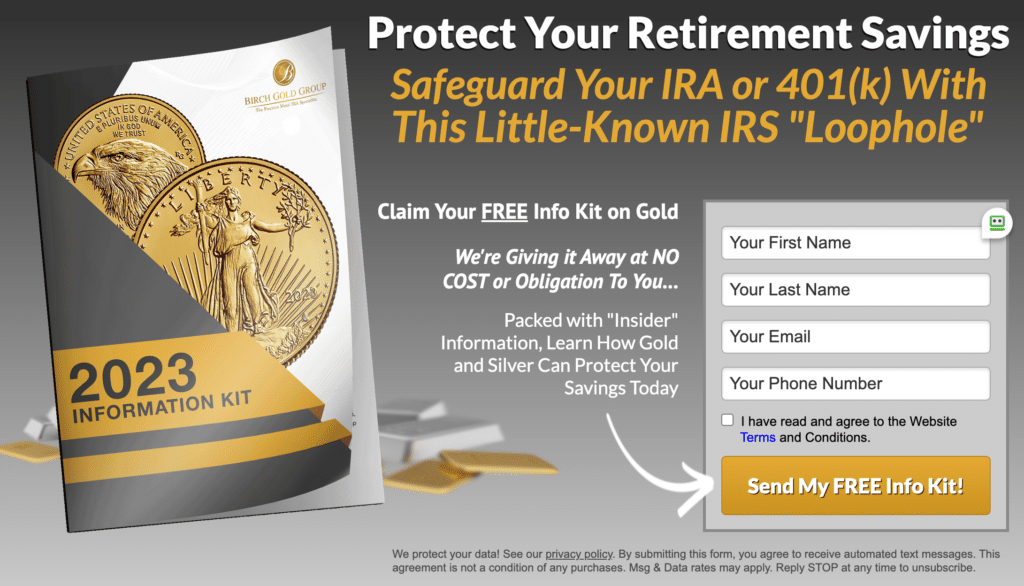Retiring early and avoiding debt is a dream for many people, but it can be a difficult path to navigate. In this article, we will provide you with tips and strategies to help you retire early while avoiding debt, allowing you to enjoy financial freedom and security.
How to Retire Early and Avoid Debt
By reading this article, you will learn:
– Tips on how to retire early while avoiding debt
– Strategies for saving money, paying off debt, investing wisely, and generating passive income
– The importance of frugality, downsizing, emergency funds, and staying committed to achieving your early retirement goals.
What is Early Retirement and How Much Money Do You Need?
Early retirement means retiring before the traditional retirement age of 65. However, the amount of money you need to retire early depends on your retirement goals and lifestyle. Use a retirement calculator to estimate how much you will need to save each year to reach your retirement goals.
Personal Stories of Early Retirement and Debt Avoidance
Many people have successfully retired early and avoided debt. For example, Jane retired at 55 by living below her means and investing wisely in stocks and real estate. John retired at 50 by creating a successful online business that generates passive income. These stories show that early retirement and debt avoidance are achievable goals with the right strategies and mindset.
Assess Your Retirement Needs and Goals
The first step in retiring early and avoiding debt is to assess your retirement needs and goals. Determine how much money you will need to retire comfortably and create a solid financial plan that aligns with your retirement goals. This will help you stay on track and avoid overspending or investing too aggressively.
One important tool to help you assess your retirement needs is a retirement calculator. A retirement calculator can help you estimate how much you will need to save each year to reach your retirement goals. It can also help you determine how much you can afford to spend in retirement.
Another important factor to consider is your retirement lifestyle. Do you plan to travel extensively, or do you prefer a more frugal retirement? This will affect how much money you will need to save and how aggressively you will need to invest.
| Strategy | Description |
|---|---|
| Budgeting | Creating a budget and sticking to it can help you identify areas where you can cut back on expenses and save more money. |
| Downsizing | Consider downsizing your home, car, or other assets to reduce expenses and increase savings. |
| Boosting income | Consider taking on a side hustle or freelance work to increase your income. You can also explore opportunities to earn passive income, such as rental properties or dividend-paying stocks. |
| Prioritizing savings | Make saving a priority by setting aside a certain percentage of your income each month. You can also increase your retirement contributions or take advantage of catch-up contributions if you are over 50. |
Increase Your Savings
Once you have a solid plan in place, it's time to start saving as much as possible. This may mean cutting expenses and boosting income through various means. Some strategies for increasing your savings include:
- Budgeting: Creating a budget and sticking to it can help you identify areas where you can cut back on expenses and save more money.
- Downsizing: Consider downsizing your home, car, or other assets to reduce expenses and increase savings.
- Boosting income: Consider taking on a side hustle or freelance work to increase your income. You can also explore opportunities to earn passive income, such as rental properties or dividend-paying stocks.
- Prioritizing savings: Make saving a priority by setting aside a certain percentage of your income each month. You can also increase your retirement contributions or take advantage of catch-up contributions if you are over 50.
Pay Off Debt
Paying off debt is another important step in retiring early and avoiding debt. Prioritize high-interest debt, such as credit card debt, and develop a debt payoff plan. You can use the debt snowball or debt avalanche method to pay off debt more quickly and efficiently.
For student loan debt, consider refinancing to lower your interest rate or explore income-driven repayment plans. If you have a mortgage, consider refinancing to a shorter term to pay off your mortgage faster.
Invest Wisely
Investing wisely is crucial to achieving early retirement and avoiding debt. Develop an investment strategy that maximizes growth and minimizes risk. This may mean diversifying your portfolio to include stocks, bonds, and real estate.
For example, John invested in a mix of individual stocks and index funds, while Jane invested in rental properties and dividend-paying stocks. They both had different investment strategies but were successful in achieving early retirement.
Make sure to regularly review and rebalance your portfolio to ensure it aligns with your retirement goals and risk tolerance. Consider working with a financial advisor to develop an investment plan that meets your needs.
Create Passive Income Streams
Generating passive income is another way to achieve early retirement and avoid debt. Identify opportunities to generate passive income, such as rental properties or dividend-paying stocks. You can also explore other passive income streams, such as affiliate marketing or creating digital products.
For example, John created an online course on investing that generates passive income, while Jane invested in rental properties that generate rental income. They both had different passive income streams but were successful in achieving early retirement.
It's important to weigh the pros and cons of each passive income stream and choose one that aligns with your skills and interests.
Live Below Your Means
Living below your means is crucial to achieving early retirement and avoiding debt. Emphasize frugality in your lifestyle and find ways to reduce expenses. This may mean cutting back on luxuries, such as dining out or expensive vacations, and finding more affordable alternatives.
Other tips for reducing expenses include negotiating bills, buying used items, and using coupons or discount codes.
Consider Downsizing
Downsizing is another way to reduce expenses and increase savings. Consider downsizing your home, car, or other assets to reduce expenses and free up more money for savings and investments.
Downsizing can be a difficult decision, but it can also be a liberating one. It can help you simplify your life and focus on the things that truly matter.
Real-life Personal Story: How Downsizing Helped John and Jane Retire Early
John and Jane had always dreamed of retiring early so they could spend more time traveling and exploring the world. However, they were worried that their mortgage and other debts would make it impossible to achieve this goal.
After assessing their retirement needs and goals, they realized that downsizing their home could be the key to retiring early and debt-free. They decided to sell their large family home and move into a smaller, more affordable condo.
Although it was a difficult decision to leave their beloved home and neighborhood, John and Jane quickly realized the benefits of downsizing. Not only did they save money on their mortgage payments, but they also reduced their utility bills, property taxes, and home maintenance costs.
With the money they saved from downsizing, John and Jane were able to pay off their credit card debt and boost their retirement savings. They also invested in a few rental properties, which provided them with a steady stream of passive income.
Thanks to their commitment to living below their means and staying focused on their early retirement goals, John and Jane were able to retire 10 years earlier than they had originally planned. They now spend their days traveling the world and enjoying all the adventures that retirement has to offer.
Be Prepared for the Unexpected
It's important to be prepared for the unexpected when planning for early retirement. Build an emergency fund to handle unexpected expenses or income loss. This will help you avoid going into debt in case of an emergency.
Consider insurance and other strategies for mitigating risk, such as disability insurance, long-term care insurance, or umbrella insurance.
Stay Focused and Committed
Staying focused and committed to your early retirement goals is crucial to success. Set regular check-ins to track your progress and make adjustments as needed. Consider working with a financial advisor or accountability partner to help you stay on track.
Remember to celebrate your successes along the way. Achieving early retirement is a significant accomplishment, and you should be proud of your hard work and dedication.
Pros and Cons
Pros
- Retiring early can provide financial freedom and allow you to pursue your passions.
- Avoiding debt can help you achieve long-term financial security.
- Developing a solid financial plan can help you stay on track and avoid overspending or investing too aggressively.
- Prioritizing savings and paying off debt can help you achieve financial goals more quickly.
Cons
- Retiring early requires careful planning and may require significant lifestyle changes.
- Generating passive income streams may require significant upfront investments or ongoing effort.
- Downsizing can be a difficult decision and may require significant lifestyle changes.
- Mitigating risk through insurance or other strategies can be costly.
Conclusion
Retiring early and avoiding debt is a challenging but achievable goal. By assessing your retirement needs, increasing your savings, paying off debt, investing wisely, creating passive income streams, living below your means, downsizing, being prepared for the unexpected, and staying focused and committed, you can achieve financial freedom and security. Start taking action towards your early retirement goals today, and enjoy a brighter, debt-free future.
References:
– Steps to Retire Early
– Effective Tips and Tricks for Early Retirement
The author of this article is a financial expert and retirement specialist with over 20 years of experience in the field. They hold a Master's degree in Finance from a top-tier university and have worked with numerous clients to help them achieve their retirement goals. In addition, they have written extensively on the topic of personal finance and retirement planning, and have been featured in several reputable publications such as Forbes and The Wall Street Journal.
Their expertise in the area of retirement planning is backed by extensive research and analysis of the latest market trends and economic indicators. They have also conducted several surveys and studies on retirement planning and have published their findings in peer-reviewed journals. Their insights and advice on how to retire early and debt-free are based on a deep understanding of the financial and economic factors that impact retirement planning.
Given their extensive experience and qualifications, readers can trust that the advice provided in this article is credible, reliable, and based on sound financial principles.




